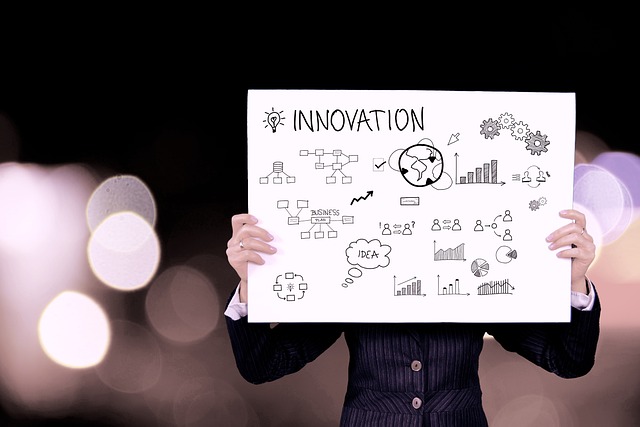Understanding the Nature of Challenges
Life is an intricate tapestry woven with threads of both joy and challenges. Every individual, regardless of their background, will inevitably face obstacles. These may manifest as personal struggles, career setbacks, or interpersonal conflicts. Understanding the nature of these challenges is the first step towards overcoming them. When challenges arise, they often trigger feelings of discomfort and frustration. Yet, it’s essential to recognize that these feelings are part and parcel of the growth process. Embracing challenges as opportunities for personal development shifts your perspective. Instead of viewing them as painful hurdles, consider them as stepping stones towards greater personal growth.
Many people feel overwhelmed by the sheer size and complexity of their obstacles. Challenges can appear like looming mountains in the distance. However, breaking these challenges down into smaller, manageable parts can ease the feeling of being overwhelmed. For instance, if someone faces a significant life change, such as job loss, it can feel insurmountable. However, examining possibilities, updating a resume, or seeking new connections can make the process of finding a new job more approachable.
Setting Realistic Goals
Once you grasp the nature of challenges, the next move is setting realistic goals. When facing obstacles, it’s easy to aim too high, which can lead to feelings of failure. The key to personal development lies in setting achievable goals. Think of these as mini milestones to work towards. For example, if you’re attempting to overcome procrastination, instead of saying, “I will never procrastinate again,” you might say, “I will work for 25 minutes and then take a five-minute break.”
Creating SMART goals—Specific, Measurable, Achievable, Relevant, and Time-bound—allows you to track your progress while ensuring that your ambitions remain realistic. Each small victory can boost your self-esteem and motivate you to continue striving for personal growth. It’s about celebrating the small successes as stepping stones toward overcoming larger challenges. The path might not always be smooth, but rewarding yourself, whether through a small treat or taking time for self-care, reinforces your commitment to personal development.
The Power of a Positive Mindset
A constructive mindset is a game-changer when navigating life’s hurdles. The way you perceive challenges significantly affects your ability to overcome them. Adopting a growth mindset—where you view challenges as opportunities to develop skills—is essential. This mindset encourages resilience and perseverance, which are vital for personal development. For instance, instead of dwelling on failures, view them as learning experiences that pave the way for future success.
Affirmations and positive self-talk are valuable tools for cultivating a positive mindset. When negative thoughts spring up, counter them with encouraging reminders of your strength and capabilities. Research indicates that words hold immense power. When you speak kindly to yourself, you nurture a trusting relationship with your inner self, which greatly enhances your motivation to conquer challenges. Furthermore, surrounding yourself with positive influences—people, literature, or even podcasts—can reinforce this optimistic outlook. Positivity isn’t about ignoring life’s difficulties but rather about facing them with courage and determination.
Building a Support Network
No person is an island, and this saying holds significant truth when it comes to overcoming challenges and pursuing personal growth. Building a reliable support network is another critical factor in your journey. Friends, family, mentors, and colleagues can provide guidance, encouragement, and sometimes even tangible assistance. People often underestimate the value of community. When you’re facing difficulties, sharing your experiences can lighten the burden and help you feel less isolated.
Moreover, having a diverse network can offer various perspectives and solutions to your challenges. Consider joining groups, whether online or in-person, that focus on personal development and overcoming obstacles. Engaging with others who share similar goals can foster a sense of belonging and commitment. Social connections are not only vital for emotional support but also expand your opportunities for personal development. Collaboration often sparks creativity and innovative solutions to problems that seemed daunting alone. Never hesitate to reach out; asking for help doesn’t signify weakness, but rather, it showcases your strength and willingness to grow.
Embracing Continuous Learning
Learning is a lifelong journey, especially when it comes to personal development. Each challenge you face is an opportunity to acquire new knowledge and skills. By adopting a mindset of continuous learning, you’re more likely to embrace challenges instead of shying away from them. There are countless resources at your disposal, from books and online courses to workshops and seminars. The availability of information today is staggering. Select topics that resonate with you and expand your understanding of overcoming challenges. As you learn, you not only grow but also increase your arsenal of tools to tackle future obstacles.
Additionally, experiences themselves serve as invaluable teaching moments. Reflecting on past challenges and how you navigated them equips you with insights to approach new situations with greater wisdom. Journaling can be an effective practice here. Take time to document your thoughts, feelings, and lessons learned. This reflection solidifies your growth and sharpens your problem-solving skills. Over time, you’ll find that what once felt debilitating transforms into manageable tasks as you continuously evolve through learning and self-reflection.
Implementing Self-Care Practices
When pursuing personal development and facing challenges, it’s easy to neglect self-care. However, maintaining your mental and physical well-being is crucial for resilience. Prioritizing self-care helps you recharge and approach obstacles with renewed energy and clarity. Simple practices—such as meditation, physical exercise, or honing a new hobby—can greatly impact your overall mood and mindset. Regular exercise releases endorphins, which elevate your mood and promote a sense of well-being. Consistent self-care fosters a foundation of stability, allowing you to face life’s challenges more confidently.
Don’t confuse self-care with selfishness; they are drastically different. Self-care ensures that you’re at your best to handle life’s complexities bravely. Furthermore, make it a point to establish a balance that suits your lifestyle. Create a routine that incorporates time for relaxation and reflection. You’ll find that with regular self-maintenance, you’ll build a sense of assurance and emotional resilience that empowers you to tackle challenges with greater ease. As life throws curveballs, self-care becomes your lifebuoy, keeping you afloat amidst turbulent waters.
Taking Action and Being Proactive
Time to get practical! Overcoming challenges requires action. Waiting for the perfect moment may lead to stagnation. Instead, be proactive in your approach. Identify specific steps you can take toward overcoming obstacles, and take them. Creating an action plan gives you direction and instills a sense of purpose. Imagine you’re dealing with a major life transition—such as changing careers. Start by researching potential fields, networking with professionals, or acquiring new skills relevant to your desired career.
Every step, no matter how small, propels you forward. As you take action, stay mindful of progress. Each positive action will invigorate your determination and reinforce your belief in personal growth. Additionally, accept that setbacks are part of the journey. Instead of being discouraged by them, treat setbacks as teaching moments. Analyze what went wrong, adjust your approach, and keep moving. Remember that persistence is often the differentiator between those who succeed in overcoming life’s challenges and those who do not.
Accepting Failure as Part of Growth
Failure is an inevitable aspect of life. It stings, but it’s also a vital part of the personal growth process. Accepting and dealing with failure effectively can reshape your understanding of challenges. When you face a setback, embrace it as a learning experience rather than viewing it as a defeat. What you learn from mistakes is often more valuable than the success achieved without struggle.
Consider adopting a new perspective: every failed attempt brings you closer to success by providing insights that direct your next steps. By normalizing failure as part of your journey, you become more resilient. This resilience serves as a sturdy bridge that connects your present self to your aspirations. As you move forward, remember that famous innovators failed countless times before achieving greatness. Embrace failure as an opportunity for self-improvement, and you’ll find that each stumble can become a springboard for your subsequent success.
Implementing Mindfulness and Reflection
In the hustle of life, we often overlook the importance of being present. Mindfulness practices enable you to tune in to your thoughts and emotions. Engaging with the present moment helps you develop a deeper understanding of your experiences, especially when confronted with challenges. Techniques such as meditation, breathing exercises, and simply taking time away from distractions can enhance your awareness and clarity during turbulent times.
Furthermore, reflection solidifies the lessons learned through mindfulness. Set aside time regularly to contemplate your experiences, emotions, and reactions to challenges. This practice fosters a deeper connection with your inner self. By reflecting on how you handled setbacks, you can identify patterns, strengths, and areas for development. Combining mindfulness with reflection offers a comprehensive toolkit for emotional health, enabling you to draw valuable insights from your experiences. It encourages a more profound understanding of yourself, ultimately contributing to continuous personal growth.
Adapting to Change and Flexibility
Change is the only constant in life, and developing the ability to adapt is crucial when overcoming challenges. The more flexible you are in your approach, the better you can adjust to unforeseen circumstances. Adapting doesn’t mean abandoning your goals; rather, it reflects a willingness to evolve as circumstances shift. Sometimes, the obstacles you face require you to pivot your plans or reassess your strategies.
For example, during the COVID-19 pandemic, many people had to adjust to remote working conditions. Some found innovative ways to thrive, while others struggled to adapt. An important takeaway from such experiences is embracing change with an open mind. Continuous adaptation can foster creativity and lead to unexpected opportunities. When obstacles arise, remind yourself that your ability to change course might just be the key to unlocking new paths of personal growth.
FAQ
What are some effective strategies for overcoming life’s challenges?
Effective strategies include setting SMART goals, cultivating a positive mindset, building a support network, engaging in continuous learning, and taking proactive measures. Each strategy plays a vital role in helping individuals navigate difficulties.
How can I maintain a positive attitude when faced with obstacles?
Maintain a positive attitude by practicing affirmations, surrounding yourself with positive influences, and reframing challenges as opportunities for growth. Engaging regularly in self-care also helps boost your overall mood and resilience.
Why is self-care important for personal development?
Self-care is vital as it enhances your mental and physical well-being. When you prioritize your needs, you maintain a high level of energy and motivation, enabling you to tackle challenges more effectively.
How does failure contribute to personal growth?
Failure provides valuable learning experiences that often inform your future actions. Accepting failure as part of the journey fosters resilience, promotes self-reflection, and enhances your problem-solving skills.
What role does mindfulness play in overcoming challenges?
Mindfulness encourages you to be present and aware of your thoughts and feelings. It enhances emotional intelligence, promotes effective decision-making, and encourages reflection on past experiences, all leading to more successful navigation of challenges.



